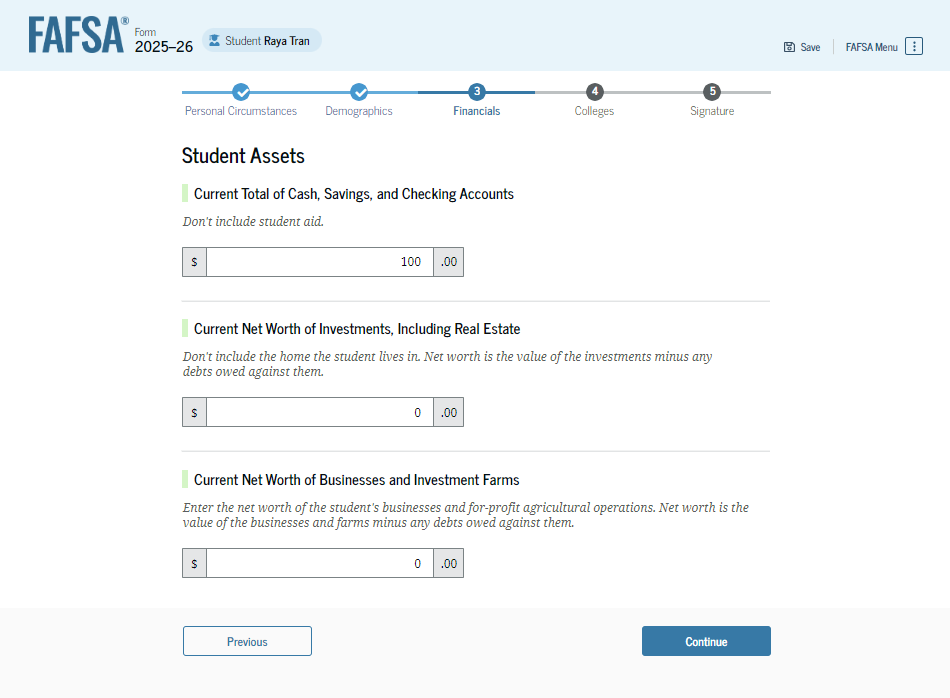How to answer FAFSA® questions about student assets
Here’s a guide for how to correctly fill in 2025-26 FAFSA® questions about your financial assets and any child support you may have received.
Here’s a guide for how to correctly fill in 2025-26 FAFSA® questions about your financial assets and any child support you may have received.
No, but you can answer zero (0) if you didn’t receive child support.
Enter to win $2,000 for college*
*No purchase necessary. Void where prohibited. Odds of winning depend on number of entries received. Ends December 31, 2024. See Official Rules.
No

If the answer to question 3 was “Married” or “Remarried,” enter the combined amounts held by the student and their spouse.
Current total of cash, savings, and checking accounts
$
Don't include student financial aid.
Current net worth of investments, including real estate
$
Don’t include the home the student lives in.
Net worth is the value of the investments minus any debts owed against them.
Current net worth of businesses and investment farms
$
Enter the net worth of the student’s businesses or for-profit agricultural operations. Net worth is the value of the businesses or farms minus any debts owed against them.
Choose the FAFSA® questions you would like help with.
FAFSA® student income tax information
